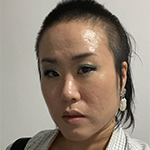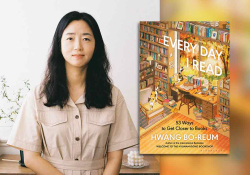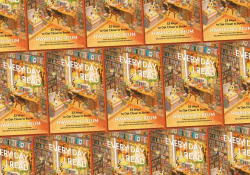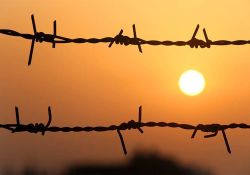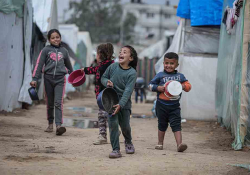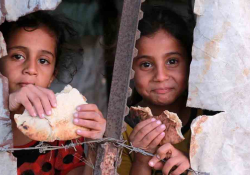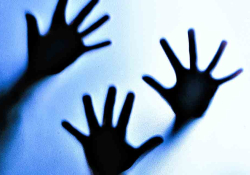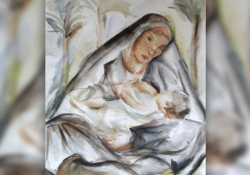Pizza
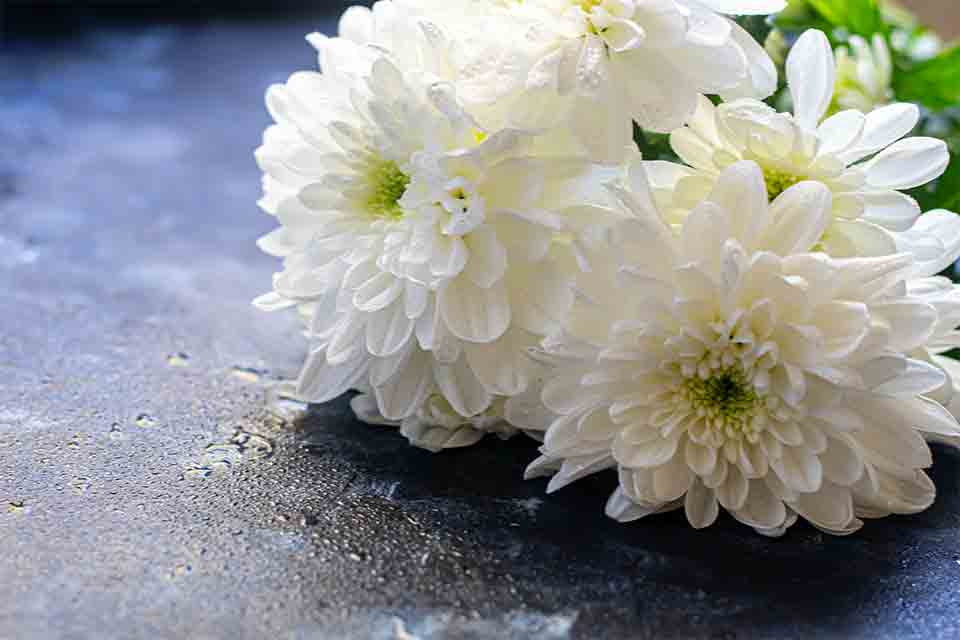
A mourner at a funeral reflects on the role of queer elders.
Made ordinary and mundane, queer deaths big and small trigger modest seisms with each loss. But what followed the news of Pizza’s death was an immediate, brutal silence.
Among the many early deaths fluttering within my grasp, Pizza’s passing felt particularly raw and heavy. Their name trilled an octave above the sobering weight of existence—the “late” added before it felt especially forced.
An old friend who looked particularly gender-ambiguous the day of Pizza’s funeral was withdrawing cash from the ATM when I got to the basement parking lot. When I opened my wallet, thinking I should also take out about 30,000 won, a floppy 50,000-won bill slipped out as if it had been waiting for this moment. I headed to the stack of white envelopes and the black felt-tip pens by the funeral parlor’s entrance. One for my friend, one for me. My friend scrawled their name, then I scribbled mine. We made our way to the hall where white chrysanthemums bloomed in droves and the names of nearly every single justice-pursuing organization in this country lined up beside the flowers.
Pizza used to show up to every single protest to the point where you’d think, “Really? Here too?” So, the fact that Pizza was absent at Pizza’s funeral was mind-boggling. Once I’d completed the offering ritual like a seasoned expert—place memorial flower at the altar, light stick of incense, bow twice—and stepped into the room full of low tables covered with thin plastic sheets, a friend who’d been holding a tray of food burst into tears and found their way into my arms. Or maybe I found my way into theirs. Looking out onto this already-packed room, I wanted to weave through the crowd and squeeze into a seat in their midst. A friend glanced at the excessively diverse array of people passing by us, behind us, and before us. “This is exactly the sort of place where Pizza would be,” they murmured.
Only when Pizza had died did I learn their age. Fifty-four. I couldn’t help but let out a few chuckles at the absurdity of that number. Pizza had shown up to the queer scene over twenty years ago. Right away, we’d made Pizza act as our queer elder—so early, and for so long.
For queers who keep busy by checking in on each other’s survival every year, there have never been enough elders. We referred to anyone ten (or even five) years ahead in life “the older generation” in hopes that they would act like real adults. We believed those who’d come before us even just a handful of years earlier would have some kind of tried-and-true wisdom. On them, we dumped all the resentment and complaints that society and our blood kin had failed to acknowledge. We expected them to support us unconditionally like they’d been born with the responsibility, and sneered when they made the slightest hint of wanting to be appreciated for their kindness. In the face of danger, we poked a hole in their side, expecting them to step up and be our shield.
For queers who keep busy by checking in on each other’s survival every year, there have never been enough elders.
Of course, all this is unsurprising, understandable behavior. An intergenerational dynamic and emotional impulse found in all sorts of communities. But sometimes we would forget that none of us could be shrewd, upstanding individuals every moment of our lives. As an older queer person, you’d spend year after year demanding that society recognize you as a human being despite its refusal to do so regardless of your age. Then you’d turn around and see a horde of queers who weren’t even that cute calling you “Daddy,” asking you to demonstrate a wisdom and patience that transcended the limits of time and human capacity. In spaces where you rightfully should have been considered an adult, you were constantly addressed as a naïve little kid. In contexts where you wanted to be one of the gurls and gays, you were handed the mantle of an elder several times your actual age. In short, being a queer elder sucked ass.
Even though I know this, I can’t help wanting to lean on the wrinkled folks with shocks of white hair sitting at the table across from mine, downing soju bombs with aplomb. To this handful of people, I wanted to bellow, “Just keep getting older, goddammit--don’t you dare fuckin’ die!!!”
Today, if only today, I want to find every single queer who’s older than I am, even if by just a year. I want to nuzzle up to them, acting all cute and baby like I’ve ever gotten away with it. I want to declare that their deaths will forever come too early, just the way any ungrateful piece of shit who hasn’t made their lives easier can.
At another table across from mine, I see people whose genders aren’t distinguishable through their sobs, the people Pizza brought back from the brink of death. People who’ve grown old enough to come to Pizza’s funeral, thanks to Pizza.
Looking at the parade of black ribbons and the names of righteous mourners growing longer on the wall, I exchange vows with the people at my table to never become Great. Then I start a game against everyone at the funeral. Who’s gonna get to die first?
Translation from the Korean
Editorial note: From 나는 왜 이렇게 웃긴가, copyright © 2023 by Ibanjiha. English translation copyright © 2025 by Hoyoung Moon.
